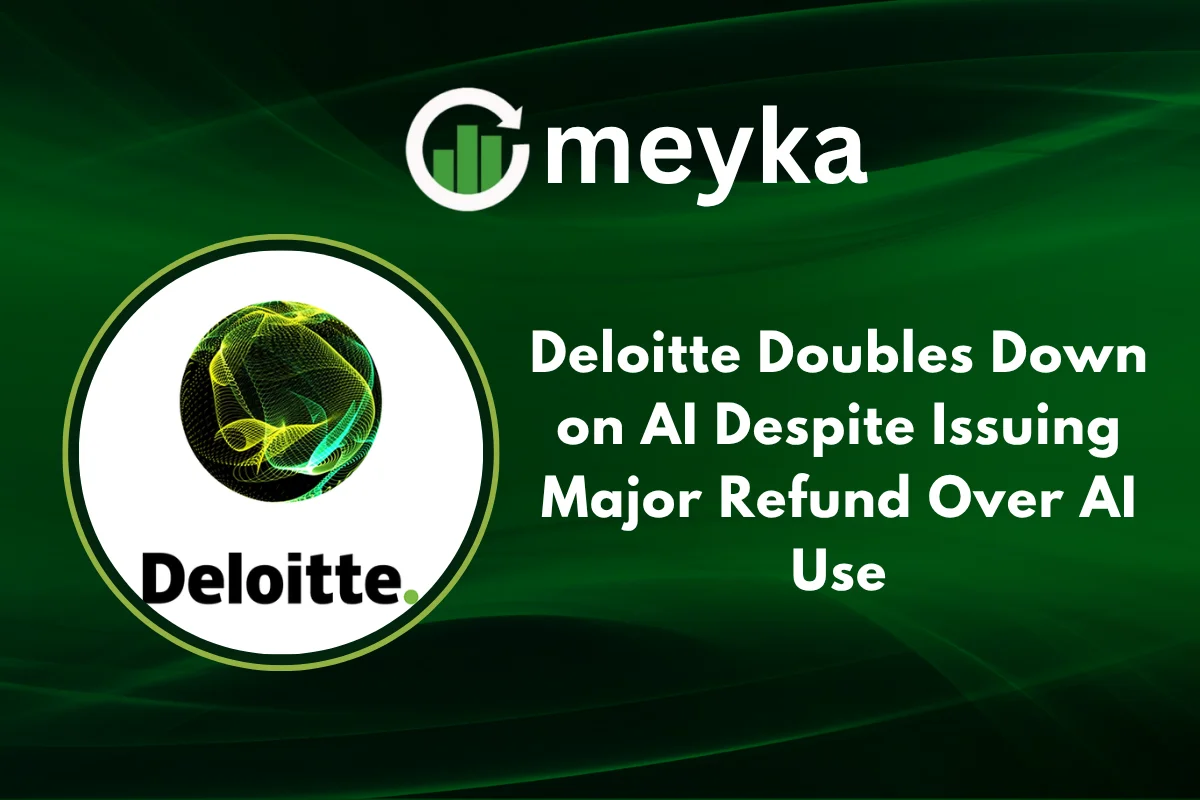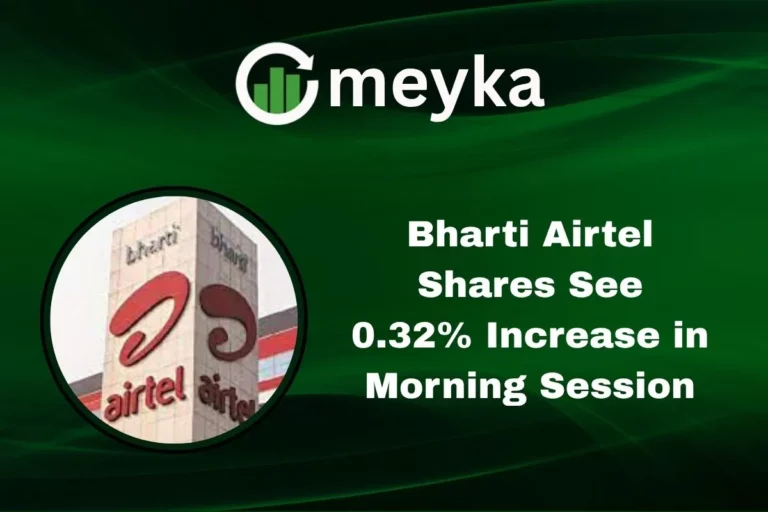Deloitte Doubles Down on AI Despite Issuing Major Refund Over AI Use
In a bold and seemingly paradoxical move, Deloitte is reinforcing its commitment to artificial intelligence (AI) even after publicly issuing a major refund tied to AI deployment. This decision underscores the firm’s conviction that AI will remain central to the future of consulting and professional services, despite recent pushback and recalibration.
The Refund Incident: What Happened
Earlier this year, Deloitte announced that it would issue a substantial refund to certain clients after problems emerged with an AI‐powered tool it had deployed. The tool, designed for data analysis and forecasting, produced outputs that deviated significantly from expected results in some instances, causing client losses or dissatisfaction.
Deloitte acknowledged that while the AI model had passed internal validation, real-world variance and edge cases created errors. The firm opted to proactively refund impacted clients rather than risk reputational damage. Some clients reportedly received refunds in the millions of dollars.
While this move raised eyebrows, Deloitte described the refund as a strategic investment in trust, positioning itself as a firm that stands behind its products. In effect, Deloitte paid a price to preserve long-term credibility in the AI space.
Why Deloitte Still Doubles Down on AI
AI Is a Core Growth Engine
Despite the refund setback, Deloitte sees AI as a core engine for future growth. The firm has publicly committed resources to expand its AI labs, recruit machine learning talent, and invest in research partnerships with universities and industry labs. Deloitte views AI not as a peripheral offering, but as integral to every line of service, from risk assessment and audit to financial advisory and tax.
Learning from Real-World Feedback
By issuing the refund, Deloitte gained access to a trove of user data, edge-case failures, and client feedback. That feedback loop is now being incorporated into improved model robustness, quality assurance pipelines, and domain adaptation. In short, the refund was part of a learning posture to strengthen future deployment.
Signaling Confidence to Clients and the Market
Refunding clients sends a message: Deloitte is confident enough in its AI roadmap to absorb costs when things go wrong. The firm is emphasizing accountability, which is particularly valuable in high-stakes consulting. Clients may trust Deloitte more, believing the firm stands behind its work rather than issuing hollow disclaimers.
Defending Competitive Positioning
In the competitive arena of AI consulting, Deloitte competes with big firms (McKinsey, BCG, Accenture) and myriad startups. The refund episode could have undermined its positioning, but doubling down signals that Deloitte is not retreating. Rather, it’s retooling to meet the standard. Deloitte aims to stay ahead in the AI arms race, especially in regulated domains like finance, healthcare, and the public sector.
Implications for AI Stocks and Professional Services
Investor Sentiment
For investors monitoring AI stocks and professional services firms, Deloitte’s stance sends multiple signals:
- The professional services sector views AI as strategic, not optional.
- Leading firms will take risks, even costly ones, to secure long-term dominance.
- Future earnings of consulting firms may become more tightly tied to AI deployment and monetization.
Risk Awareness
The refund incident underscores that model risk is real. Investors should assess how firms manage AI quality control, error mitigation, and client recourse. A firm that hides failures may be riskier than one that owns them.
Valuation Multiples
As AI becomes baked into consulting revenue, valuation metrics may evolve. Instead of valuing firms by traditional consulting margins, analysts may emphasize metrics like AI adoption rate, recurring AI-centric contracts, and margin expansion from AI automation.
Sector Differentiation
Firms that avoid AI or only adopt it on the margin may be left behind. Deloitte’s bold approach separates it from competitors unwilling to absorb short-term costs for long-term gains.
How Deloitte Is Reinforcing AI Safeguards
Robust Model Validation and Simulation
In the wake of the refund, Deloitte has reportedly implemented more rigorous testing protocols, including adversarial simulations, stress tests, and blind validation sets. These layers aim to prevent outputs that diverge wildly from reality.
Human-in-the-Loop Governance
Deloitte is emphasizing human oversight, especially in critical applications like audit, compliance, or policy advising. AI tools now come with oversight checkpoints, where human experts review flagged outputs before final decisions.
Domain-Specific Fine-Tuning
Rather than deploying black-box models, Deloitte is customizing AI models per industry, with domain constraints and business rules guiding predictions. This reduces the risk of nonsensical model outputs.
Transparent Error Reporting and Client Monitoring
Clients now receive more detailed diagnostics, confidence intervals, and error bounds. Deloitte also deploys continuous monitoring post-deployment to catch drift, anomalies, or unexpected behavior. That transparency helps clients trust AI systems going forward.
Challenges and Risks Ahead
Regulation and Liability
As regulators scrutinize AI, Deloitte could face legal exposure, especially if its models lead to financial harm. Balancing innovation with compliance will be critical.
Public Trust and Reputation
The refund episode may haunt perceptions long-term. Deloitte must continue proving its models are safe and dependable if it wants to erase doubts.
Talent Competition
AI talent is highly contested. Deloitte must compete with Big Tech, startups, and academia to attract and retain experts who can deliver safe and performant models.
Integration Complexity
Deploying AI at scale across diverse client systems, data platforms, and legacy infrastructures is nontrivial. Deloitte will need strong engineering and change management capabilities.
Outlook: Can Deloitte Turn This Into a Strength?
We believe Deloitte’s decision to double down on AI, despite issuing a significant refund, is a bold and potentially rewarding gamble. The episode may be reframed as a case study in corporate accountability and learning culture.
If Deloitte successfully weaves AI into its core offerings and consistently delivers value, it could reassert itself as a leader in AI-driven consultancy. For the market, this move underscores that AI is no longer an optional enhancement but a foundational pillar for future growth.
Analysts should closely watch how Deloitte secures new AI contracts, whether clients adopt AI subsystems across operations, and how Deloitte monetizes AI over time. For investors in AI stocks and professional services firms, Deloitte’s path offers a lens into how legacy firms are evolving into tech-powered competitors.
FAQs
Deloitte acknowledged that some clients received flawed forecasts or outputs from the AI tool due to unanticipated real-world conditions. Rather than dispute liability, Deloitte opted to refund affected clients as a trust-building measure.
On the contrary, Deloitte is doubling down, viewing the refund as an investment in accountability. It believes AI is central to future growth and is reinforcing governance, transparency, and model safety as it moves forward.
Deloitte’s bold move suggests that the consulting sector will increasingly be defined by AI capabilities. Investors should look at metrics such as AI adoption rate, recurring AI revenue, and risk management around AI as differentiators.
Disclaimer:
This content is made for learning only. It is not meant to give financial advice. Always check the facts yourself. Financial decisions need detailed research.






